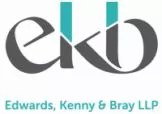Effective January 11, 2024, Canada will join the Convention Abolishing the Requirement of Legalization for Foreign Public Documents, also known as the Apostille Convention (the "Convention"). The Convention provides Canadians and Canadian businesses with an expedited process for the authentication and legalization of public documents.
Currently, legalization of Canadian documents requires a multi-step authentication process involving multiple authorities, in order for a document to be formally recognized within a foreign country.
Under the Convention, Canadians and Canadian businesses can soon submit their public documents to obtain a one-step authenticity certificate called an "Apostille." The Apostille authenticates the origin of a public document so that it can be presented abroad in any of the other 124 countries that are currently parties to the Convention. Parties include the United States, Mexico, Peru, Chile, Brazil and Colombia.
Until the Convention comes into effect in Canada on January 11, 2024, Canadians and Canadian businesses must continue to use the current multi-step method of authentication and legalization for each country within which the applicable document is to be used.
Note that once the Convention is in effect in Canada, it will still be necessary to confirm that the country one is dealing with is a party to the Convention. Where the subject country is not a party, the authentication and legalization process will still need to be used.
Canada Adopts Apostille Convention
The content of this article is intended to provide a general guide to the subject matter. Specialist advice should be sought about your specific circumstances.



